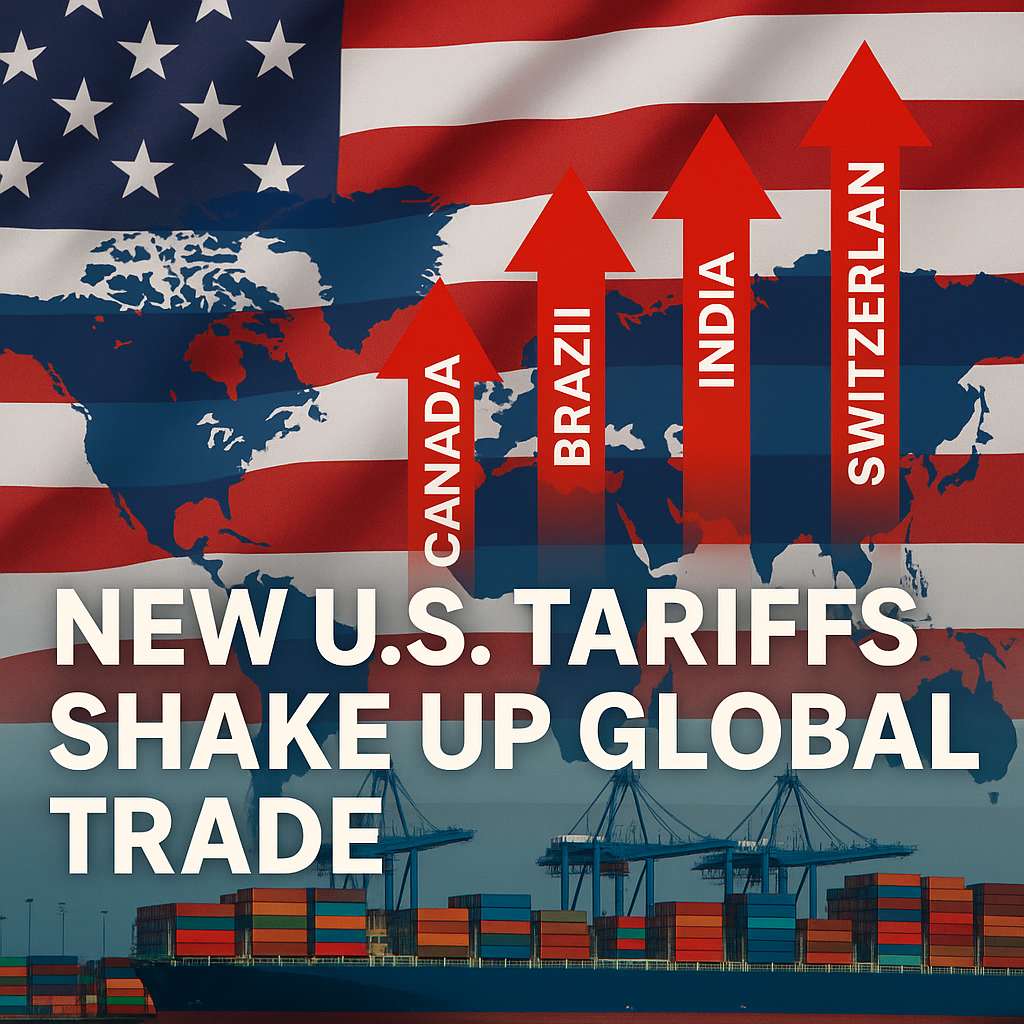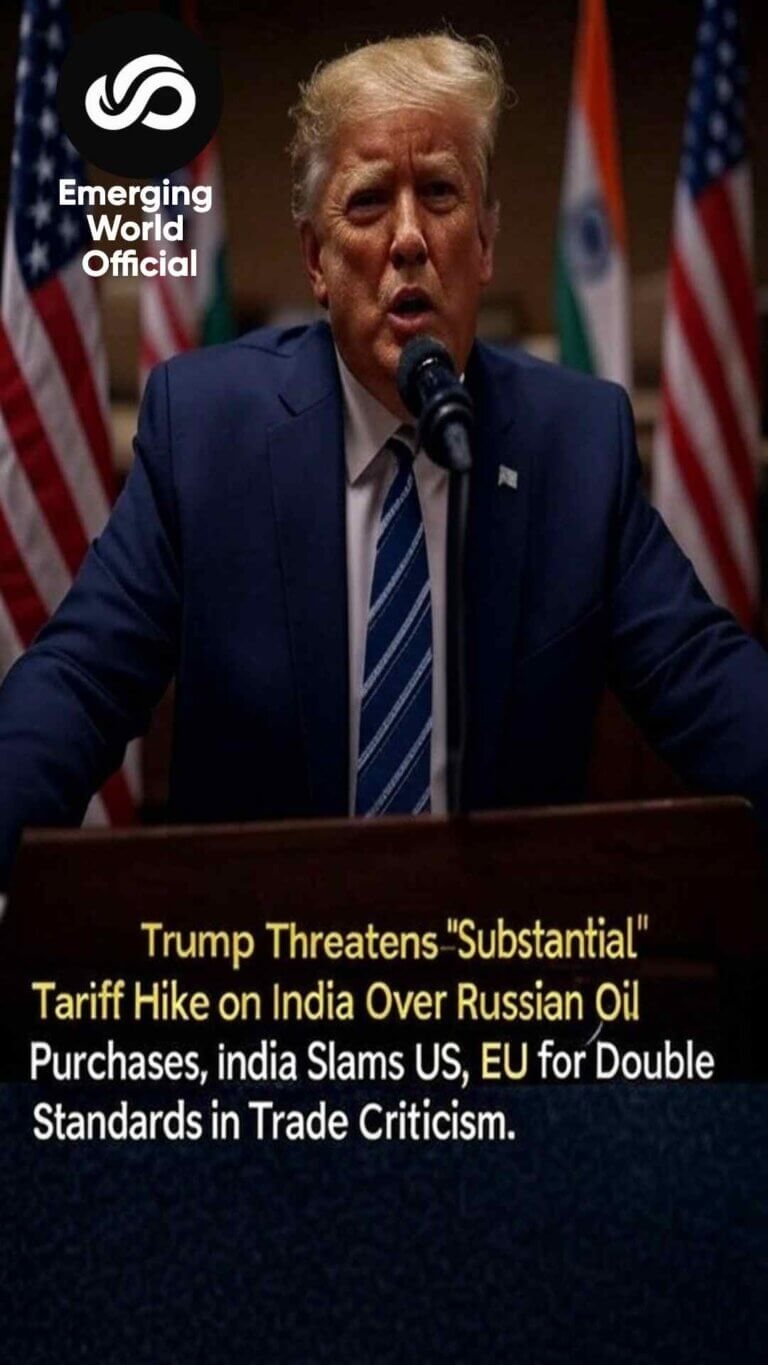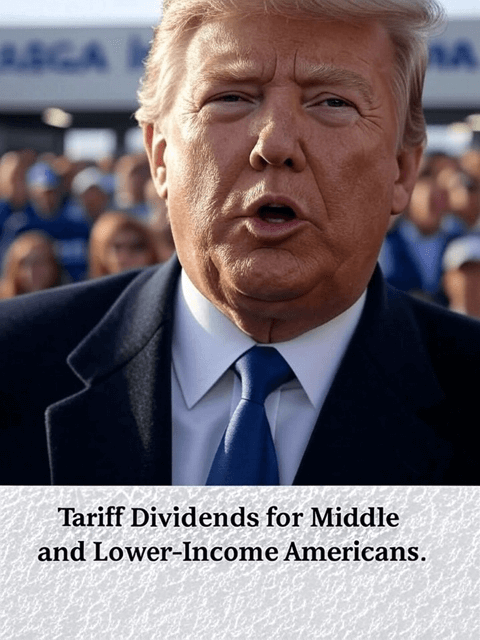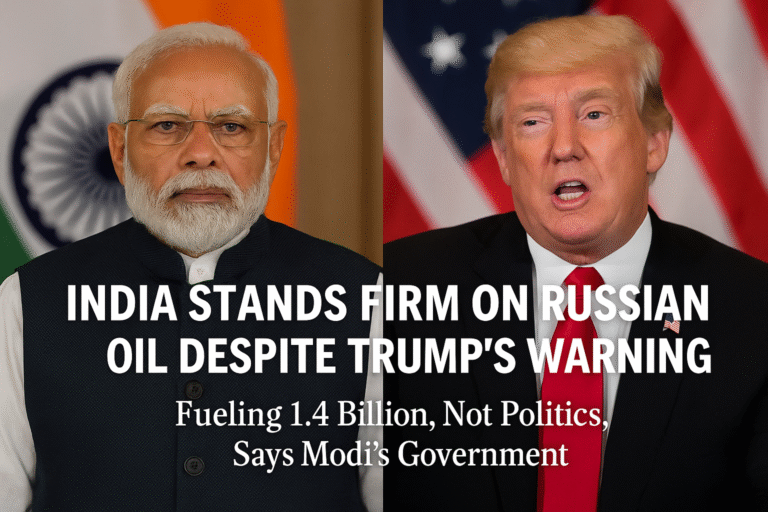New U.S. Tariffs Shake Up Global Trade: Countries Brace for Long-Term Impact
By Emerging World | August 3, 2025
The United States is once again drawing global attention after President Donald Trump’s administration confirmed that a new wave of import tariffs—announced just last week—will likely remain in place for the foreseeable future. These measures, which have already stirred concern among major trading nations, are part of Washington’s broader trade strategy aimed at balancing deficits and protecting domestic industries.
Sharp Tariffs Hit Multiple Nations
According to a presidential executive order issued Friday, the new tariffs vary by country and product. Some of the most notable rates include:
- 35% on Canadian goods
- 50% on imports from Brazil
- 25% for products from India
- 20% on Taiwanese exports
- 39% on goods from Switzerland
These duties are among the steepest seen in recent years and are expected to have immediate effects on both pricing and supply chains across the globe.
White House Clarifies: Tariffs Are Staying
During an interview with CBS’s Face the Nation on Sunday, U.S. Trade Representative Jamieson Greer made it clear that these tariffs aren’t temporary bargaining chips, as some had hoped.
“A lot of these are set rates pursuant to deals,” Greer said. “Some of these deals are announced, some are not. Others depend on the level of the trade deficit or surplus we may have with the country.”
He further emphasized that the most recent tariff decisions are “pretty much set” and will not be reduced as part of ongoing negotiations, unlike previous rounds where certain duties were scaled back during talks with the European Union.
Exception: EU Sees Slight Relief
Last week, as part of discussions with the European Union, the administration did reduce some previously announced tariffs by half. However, Greer indicated this was a special case and not a sign of wider flexibility.
This selective approach is sending mixed signals to global partners, many of whom are now reassessing their trade strategies with the U.S.
Focus on China: Rare Earths in the Spotlight
Despite the rigid stance on tariffs, Greer did hint at progress in ongoing trade discussions with China, especially around the supply of rare earth magnets and minerals—key components used in electronics, defense systems, and clean energy technologies.
“We’re focused on making sure that the flow of magnets from China to the United States and the adjacent supply chain can flow as freely as it did before,” Greer noted. “I’d say we’re about halfway there.”
These talks are considered crucial, as China dominates the global market for rare earth elements and any disruption could have far-reaching consequences for American manufacturing and tech sectors.
Global Reactions and Economic Concerns
The announcement has triggered a range of reactions worldwide. Analysts warn that such aggressive tariff policies may lead to retaliatory measures from affected countries, risking a new wave of trade disputes.
Economists are also concerned about potential price increases for American consumers, especially in industries heavily reliant on imports. At the same time, some U.S. manufacturers may benefit from reduced foreign competition.
What’s Next?
As the global economy continues to recover from previous trade tensions and supply chain disruptions, these new tariffs add fresh uncertainty. With no indication of an imminent rollback, businesses and governments alike are bracing for long-term impacts.
Stay connected with Emerging World for ongoing coverage of trade developments, economic policy, and international relations.
✅ Editor’s Suggestion: Why This Matters to You
Whether you’re a business owner, a trader, or just someone following global affairs, these tariff changes could affect prices, product availability, and even job markets in ways that aren’t always obvious. Keep an eye on how your country or industry reacts—and don’t forget to explore how local policies might shift in response.
If you’re involved in import/export or rely on international supply chains, now is a good time to review contracts, pricing models, and risk strategies.
Contact Us:
📩 emergingworldofficial@gmail.com
Share this content:








One Comment